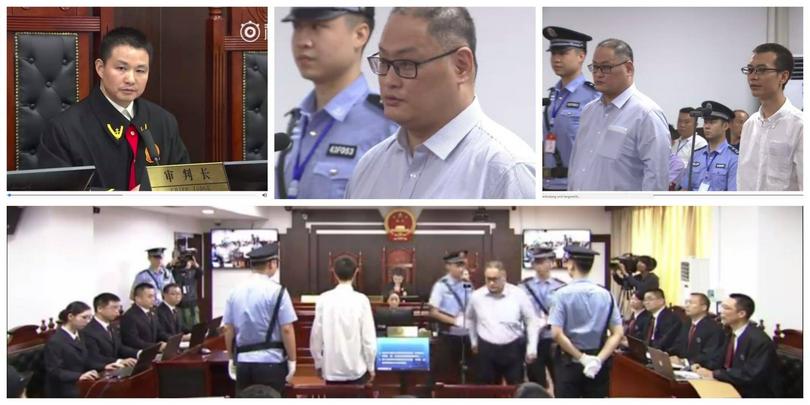Lee Ming-che, a Taiwanese pro-democracy activist, has gone on trial in China after being accused of "subverting state power".
What is subverting state power?
It is defined as organizing, scheming and acting to subvert the political power of the State and overthrow the socialist system. It also refers to incitement or provocation to subvert the political power of the State and overthrow the socialist system by means of spreading rumors, slander or other ways to elicit the feelings of people, giving them second thoughts that often leads to plotting against the government.
Chinese authorities say that Lee Ming-che promoted multi-party rule in group messaging chats.
The 42-year-old activist went missing in China in March and was later revealed to have been detained. While there was only little information given by Chinese authorities, the case has gripped Taiwan amidst already strained relations with China.
His wife Lee Ching-yu, who has led calls for his release, is attending his trial in Hunan province. She had warned that Hee may be pressured to make a confession against his will.
Lee, an NGO worker, is a well-known democracy and human rights activist in Taiwan.
On the 19th of March, he travelled to the semi-autonomous Chinese territory of Macau, then moved on to the southern mainland province of Guangdong where he went missing.
His wife later held a press conference in Taiwan calling for answers from the Chinese government.
To add to that, on March 29, China announced that Lee had been detained for "pursuing activities harmful to national security". In May, authorities said he was suspected of "subverting state power", and that he was being held in Hunan province.
A Chinese activist, Peng Yuhua, is also on trial with Lee on similar charges.
Prosecutors at the Yueyang Intermediate Court in Hunan province, which is posting live updates on the trial online, accused Lee of "attacking Chinese society and encouraging multi-party rule".
They are saying that he did this through an organization called Plum Blossom Company set up with Peng, and also through posts in a group chat with more than 2,000 members in the popular messaging app QQ.
Lee was accused of using the medium to organize activities "inciting others to subvert state power" as well. Lee was seen in a recorded clip at the trial saying he had "no objection" to the charges.
He admitted that he had circulated and written articles that "attacked and wickedly smeared the Chinese government" and "promoted Western-style multi-party democracy" on various social media and messaging platforms.
According to Lee's family and colleagues, they are saying that he did regularly exchange messages with friends in mainland China discussing democracy and China-Taiwan relations, but that he had done nothing wrong and only shared his experiences as an activist.
On Saturday, his wife told the reporters: "Please forgive Lee Ming-che if you see him doing or saying something embarrassing in court under duress.
"That is just the result of the Chinese government skillfully extracting a 'guilty confession'," the CNA website (in Chinese) quoted her as saying.
However, the case has strained relations between China and Taiwan, which Beijing considers a breakaway province to be reunited with the mainland one day and while it is being watched particularly closely in Taiwan, where many often travel to mainland China for work or holidays. Taiwanese President Tsai Ing-wen has called on Chinese authorities to return Lee safely, and to "not let this case be an impediment" to relations.
"China may perhaps see this as a small matter, but in reality, this is a huge cross-strait issue," she said in an interview (in Chinese) in April.
The spokesman of China's Taiwan Affairs Office, Ma Xiaoguang, previously said the investigation into Lee would be "handled in line with legal procedures".








